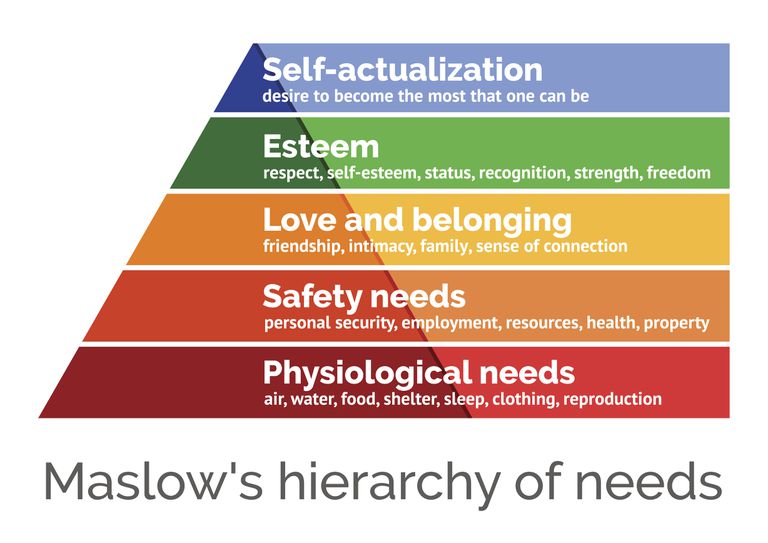Book: Emotional Well-Being for the Person with Dementia
4. People's universal needs (Maslow's hierarchy)
All humans have fundamental and universal needs throughout life.

Maslow was an American psychologist who developed a theory of psychological health based on the premise that humans have an innate range of needs. Maslow described human needs as ordered in a predestined hierarchy—a pressing need would need to be satisfied before someone would give their attention to the next highest need.
The diagram is a visual representation of his work. It suggests that if a person’s Physiological Needs (the base of the pyramid) are met i.e. need for food, shelter, water, reproduction etc. then people are able to move on to the next ‘layer’ which is Safety. Safety Needs include the need for personal safety, need for a job etc. When these needs are met, a person may move on to next layer. It may take a life time to reach the top layer which is Self-Actualisation and some people may not reach it.
Many people can identify with Maslow’s hierarchy too. Carers need to have a sense of stability and security, feeling that they are in control of their own lives, having control over what is happening around them. This can be hard when caring for someone with dementia. Studies have shown that unmet needs for relational fulfillment in both partners may add to carers’ sense of burden.
People who have dementia may move down the pyramid as they lose memory of their life experiences. Even though they are declining, they are still adults with memories, experiences, and skills that have been acquired during their life. They still have needs.